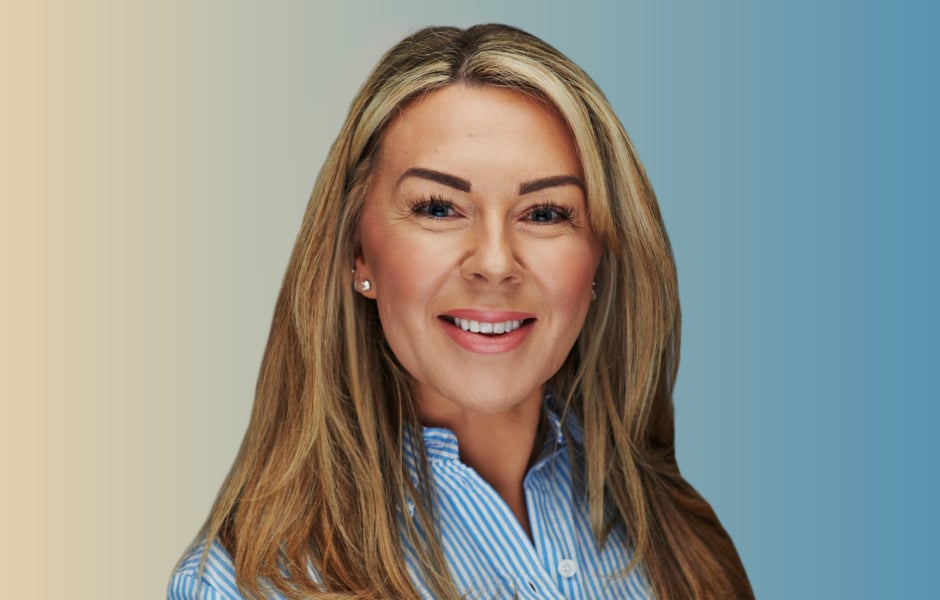Kate Lenik, Senior Director, HR and Support Services, Chiesi, shares her journey into HR, the evolving pharma workplace and the secrets behind Chiesi’s award-winning culture
Interview by Isabel O’Brien
What inspired your career in HR? Was there a defining moment that set you on this path?
People have been my focus for the last 20 years, and I can honestly say I love it. To me, people always have and always will be a fascinating subject. My degree is in psychology, so I have always been curious and inquisitive about human behaviour and what drives that behaviour. HR appealed because I could bring that curiosity into my day job.
The area of HR is continuously changing, meaning you’re always learning and evolving – for example, workforces today are made up of up to five generations – something the industry hasn’t really seen before. As a result, HR has evolved and now places greater focus on tailoring experiences to the individual, aligning with the growing trend of employee-centric approaches.
In recent years, HR has become a much more strategic, commercial function, directly influencing return on investment and shaping business success.
What makes HR such a rewarding field, and how does working in pharma bring its own unique opportunities and challenges?
While it may sound cliché, what truly captivated me about the field was the opportunity to create a positive, meaningful impact on the employee experiences of those around me. Working in HR, we have a very privileged role, getting to experience the highest of highs with our colleagues – from celebrations of new jobs and promotions to life changing and personal events. On the other hand, we also witness the lows and are often sought out for support during tough times. In some ways, we serve as gatekeepers in individuals’ lives – a responsibility I hold in very high regard.
Pharma is a unique industry. Few fields offer the opportunity to reflect on your daily work and feel you’ve contributed to something truly powerful – regardless of your role. Every position ultimately drives meaningful impact for patients which is both hugely rewarding and a huge responsibility. If we don’t perform our roles well, there can be real tangible impact, so it is crucial to hold ourselves accountable. From an HR perspective, a key aspect of this responsibility is staying aligned with the constantly evolving skills landscape, ensuring we have the talent we need today and for the future.
We serve as gatekeepers in individuals’ lives – a responsibility I hold in very high regard
Chiesi has earned multiple awards for its workplace culture. What key decisions helped shape this success, and what impact has it had on employees and the business?
While many factors contribute to our success, people are at the heart of our culture. Through open communication and collaboration, we foster an environment where everyone is encouraged to speak up and be heard, allowing us to adapt our strategy to what matters the most to our employees. For example, this year we will introduce a new maternity policy offering 6 months full pay, increase paternity leave to 2 months full pay and align adoption leave, all as a result of employee feedback.
We are also championing inclusivity; our leadership team now includes twice as many women as it did a year ago. Additionally, we’ve launched affinity networks – forums for specific communities to come together – and we are creating a diversity and inclusion steering group to further these efforts.
Chiesi is widely recognised for its culture, having been named as one of the 25 World’s Best Workplaces by Great Place To Work® and Fortune Magazine. That being said, we refuse to believe there is a finish line and we remain committed to continuously evolving our workplace.
In your view, what are the foundations of a great company culture? And how can leaders play an active role in shaping it?
A great company culture isn’t built overnight. At its core, it starts with creating an environment where people can be their true authentic selves, as this is when strengths shine in the workplace. It’s the small, every day actions that foster this sense of belonging and shouldn’t be overlooked.
From a leadership perspective, shaping a strong culture requires leading by example, with humility, vulnerability and authenticity. While this may be a test for some, these qualities are central to human leadership and cultivating trust. We must be able to empower our teams to develop the best working relationships, which ultimately build the foundations of a thriving and resilient company culture.
Workplaces are evolving fast. How can businesses balance shifting employee expectations with the need for growth and innovation?
The key to balancing shifting employee expectations with growth and innovation is a deep understanding of who we are as a business and aligning our actions and culture to that identity. Transparency is crucial so that employees can have realistic expectations and are always well informed. By openly communicating our values and setting clear boundaries, we foster an environment of authenticity that helps us listen more effectively, respond and remain honest in an ever-changing landscape. Another key element is staying informed of what is happening internally and in the broader market so we can check that we are continually pushing ourselves and responding to the needs of our employees and customers.
If your closest friend had to sum you up in three words, what would they be – and why?
That’s a tough one. I don’t believe a person can truly be summed up in just three words. People are dynamic and how I would describe someone today may be different tomorrow. I am a strong believer in individuals owning their ever-evolving story rather than being defined by a set of labels. This philosophy shapes how I approach both my personal and professional life.









